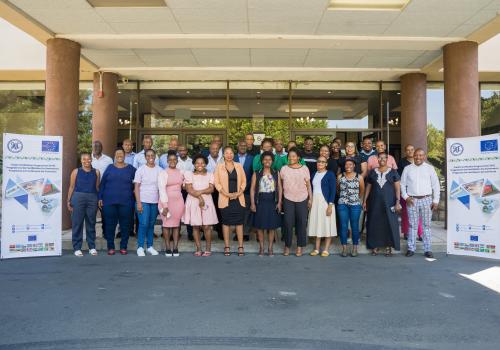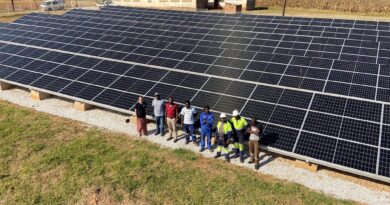SADC Boosts Entrepreneurial Capacity for EU Market Entry
The Southern African Development Community (SADC) recently organized a comprehensive capacity-building workshop in the Kingdom of Lesotho to enhance trade opportunities for Southern African entrepreneurs.
The workshop, held from March 4th to 8th, 2024, focused on educating entrepreneurs on the stringent sanitary requirements necessary for exporting food products and agricultural commodities to the European Union (EU) market.
This initiative stems from the Economic Partnership Agreement (EPA) between the EU and SADC, aimed at preserving market access and preferences for countries including Botswana, Eswatini, Lesotho, Namibia, Mozambique, and South Africa.
Agriculture stands out as a sector benefiting significantly from improved market access under the EU-SADC EPA, particularly in commodities such as sugar, dairy products, canned fruits, flowers, and fisheries.
Mr. Lebusetsa Pholosi, the Programme Officer for EPA at the SADC Secretariat, emphasized the importance of complying with Non-Tariff Measures (NTMs), especially Sanitary and Phytosanitary (SPS) requirements, which were identified as major hurdles hindering export growth from SADC EPA Member States to the EU market.
To address these challenges, the SADC Trade Facilitation Programme (TFP), funded by the EU, conducted a series of workshops across SADC EPA Member States. These workshops aimed to bolster technical capacity, facilitate the implementation of SPS measures, and monitor compliance.
Government officials, producers, processors, exporters, and importers of food products and agricultural commodities participated in these workshops held in Botswana, Eswatini, Lesotho, Mozambique, and Namibia.
Ms. Nthabeleng Maphike, Senior Trade Promotion Officer at Lesotho’s Ministry of Trade, Industry, and Business Development, highlighted the significance of these workshops in providing entrepreneurs with essential knowledge and experience for trading within the EU market.
She underscored the need for value addition in traded products to drive substantial growth in trade between Lesotho and the EU under the EPA partnership.
The workshops serve as a platform for the SADC Secretariat to identify challenges hindering Member States’ full participation in the EU market and to develop an SPS Implementation Plan.
This plan will include recommendations to enhance the performance of the SPS management system within SADC EPA Member States, ultimately fostering smoother trade relations between the regions.
Through these capacity-building initiatives, SADC aims to empower entrepreneurs with the necessary skills and knowledge to navigate the complex regulatory landscape of international trade, unlocking new opportunities for economic growth and development in the region.
Additional source: SADC Secretariat



